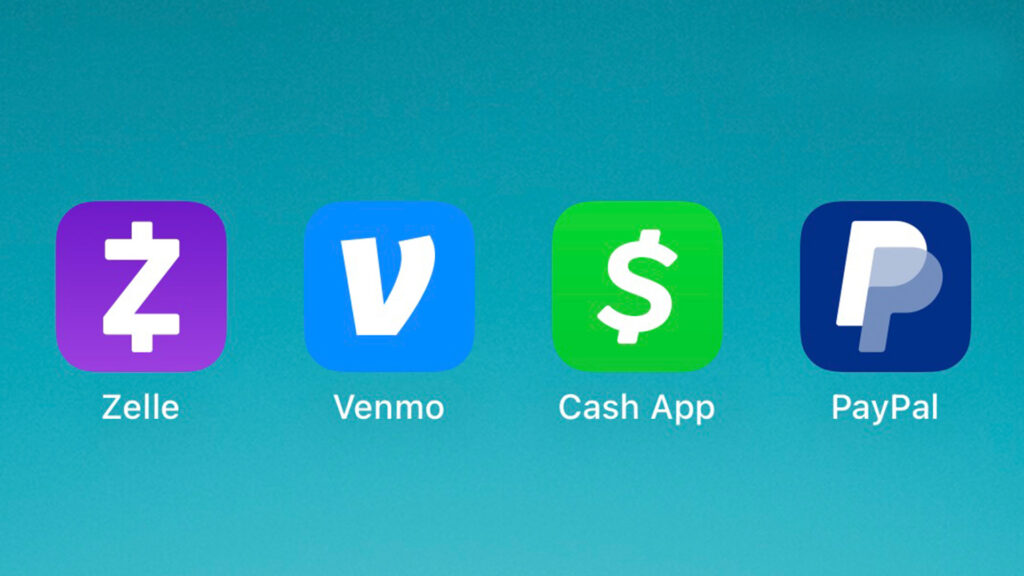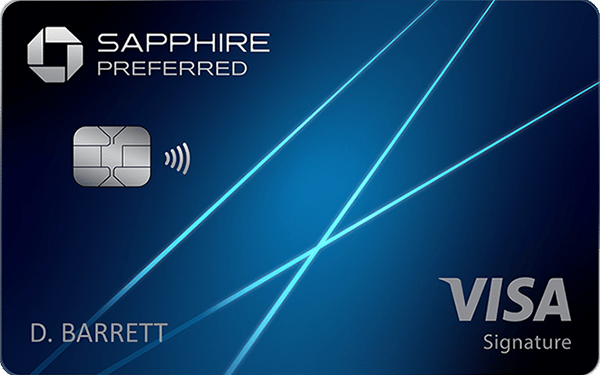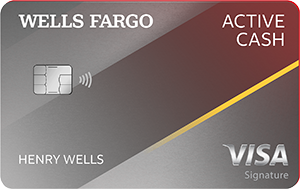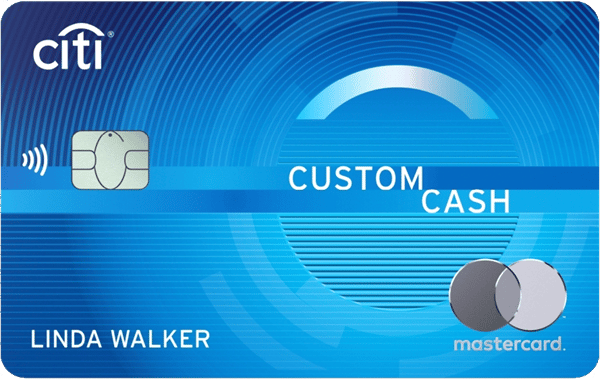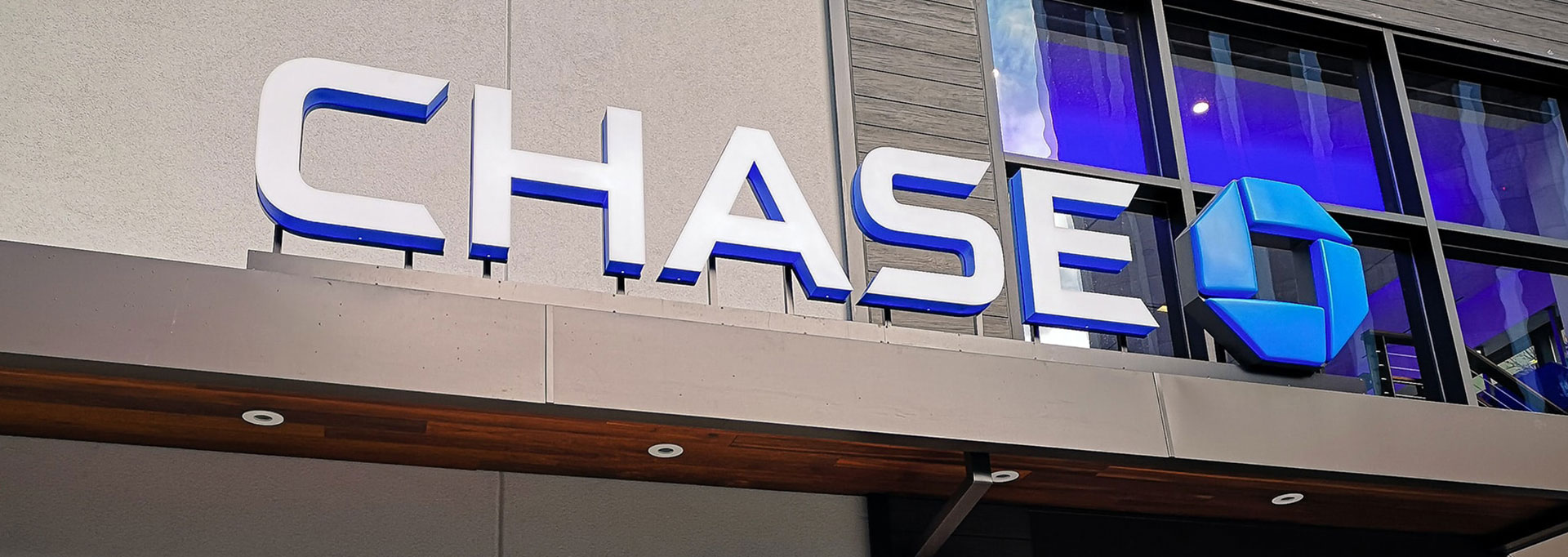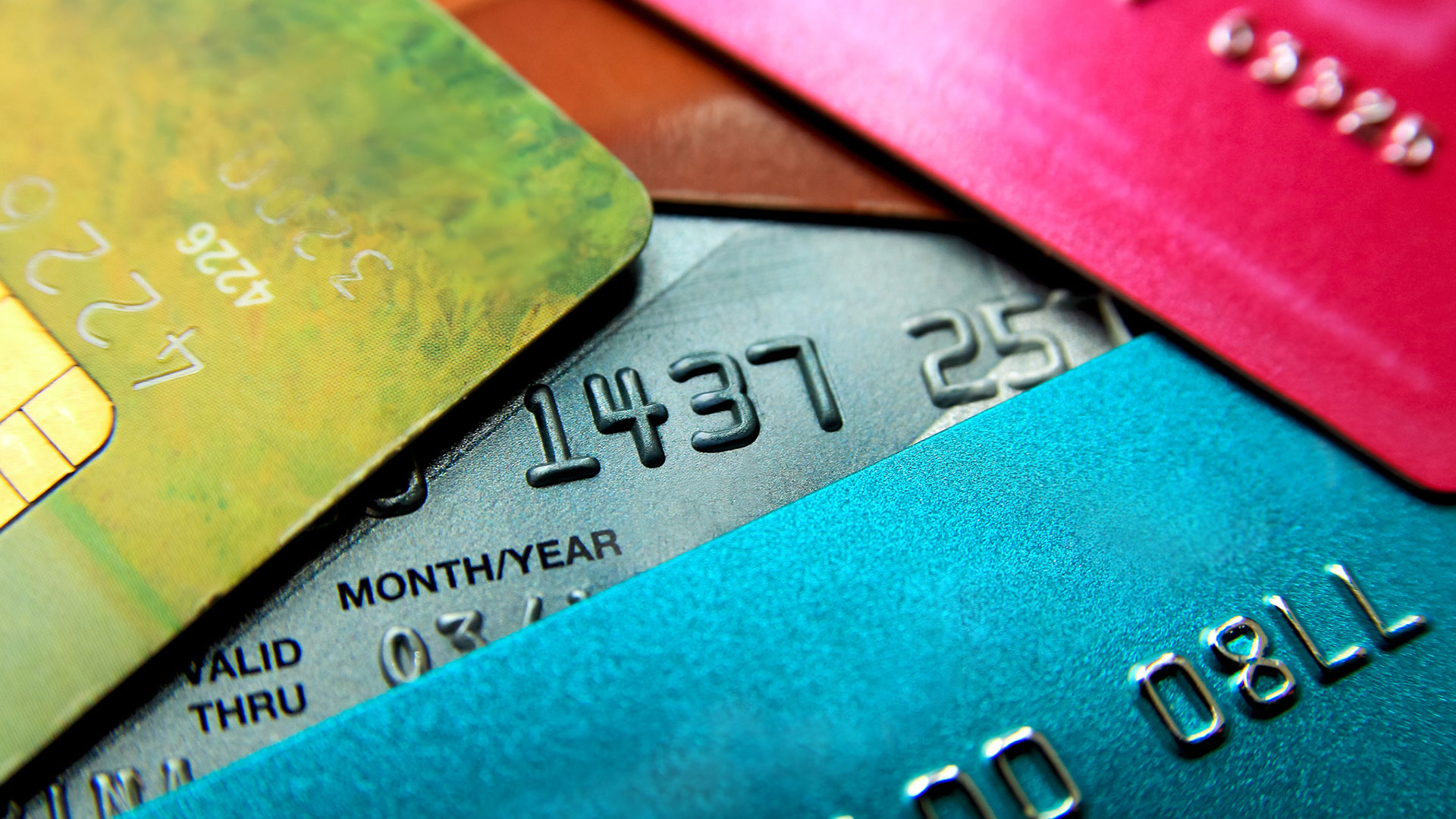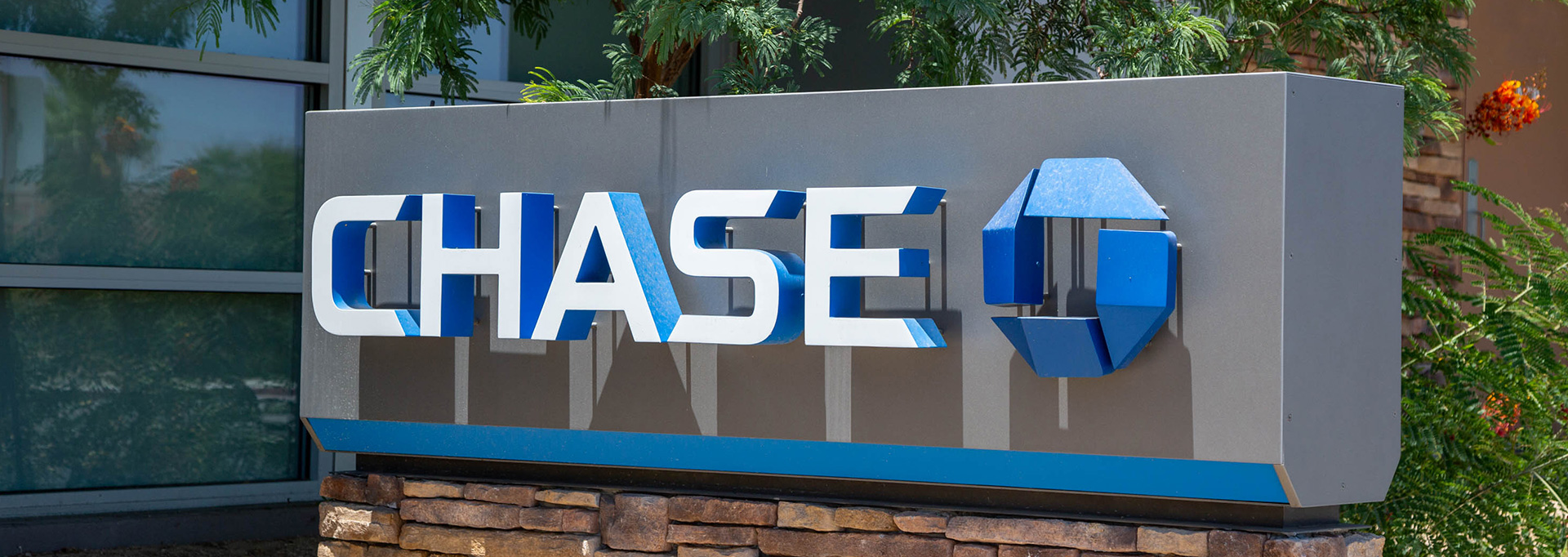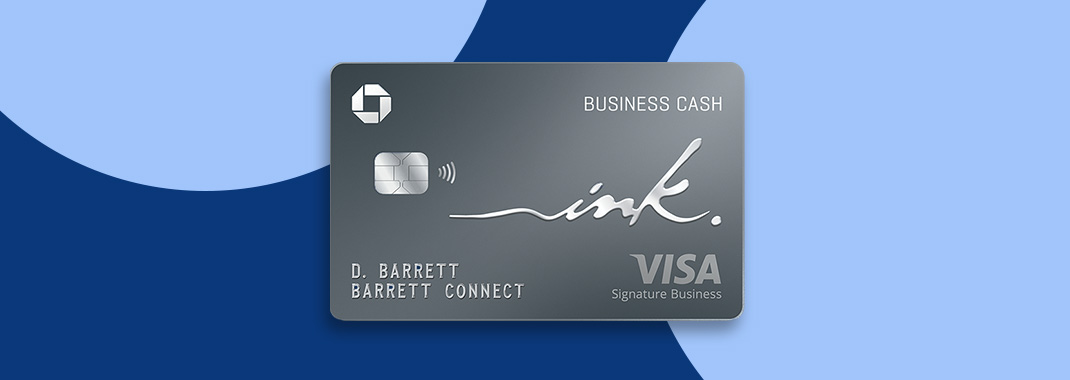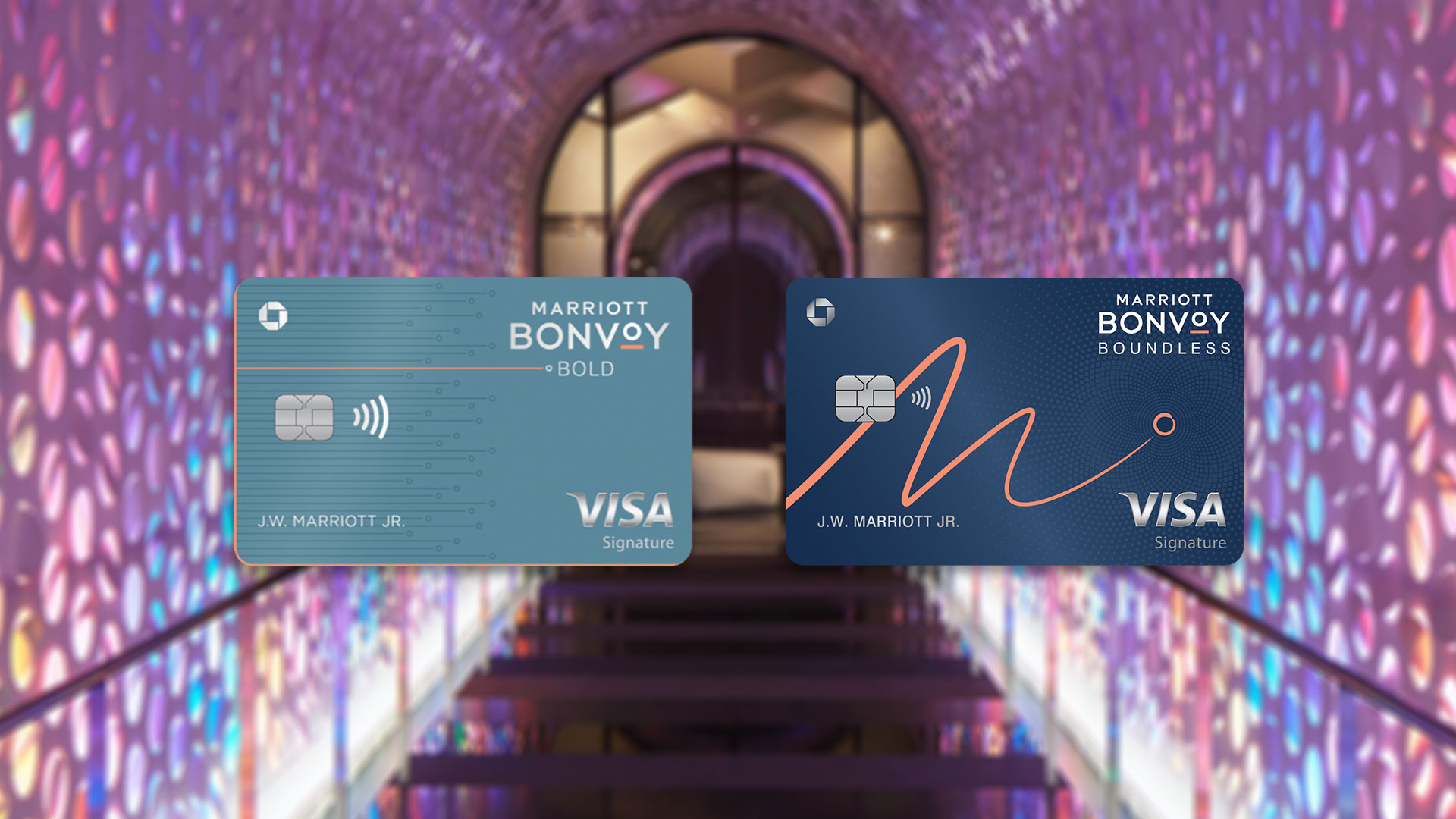Most products on this page are from partners who may compensate us. This may influence which products we write about and where and how they appear on the page. However, opinions expressed here are the author's alone, not those of any bank, credit card issuer, airline or hotel chain.
One of the best things about getting a new credit card is earning a big cash-back bonus and even free travel just for becoming a cardholder. I should know—I have nearly a dozen credit cards, and I've earned a bonus for each and every one of them. The best credit card bonuses can put hundreds of dollars in your bank account or help you stash away bonus miles for free travel.
So whether you're new to credit card bonuses or you're considering applying for a new card, we'll walk you through everything you need to know about bonus offers. Not all bonuses are created equal, so read on to figure out which sign-up bonus is right for your wallet.
How Do Credit Card Bonus Offers Work?
Many credit card issuers offer sign-up bonuses for new cardholders who spend a specific amount during a set time frame, often the first three months. For example, you may be required to spend $4,000 in the first three months of account opening to earn the bonus.
Requirements vary by card, but typically cards with higher sign-up bonuses require higher spends. There may be other limitations to look for, too. You may have to wait two years to earn a bonus from an issuer you already have a card with, for example. It's always best to read the fine print of the offer before you apply.
Quick Tip
Balance transfers, cash advances and annual fees typically don’t count toward bonus requirements.
Types of Credit Card Bonus Offers
Bonuses can come in the form of cash back, statement credits, miles or points. For some cards, the initial point bonus qualifies a cardholder for more perks, such as the use of an airline companion pass.
- Cash back: Typically, you won’t earn as much cash back as you would points and miles, but cash is easier to spend. To redeem your cash-back bonus, just request a statement credit or check or have the bonus transferred to your bank account.
- Statement credits: The card issuer will issue you statement credit, and It’s essentially the same as a cash payment to your account. Statement credits can be used to pay down your card balance or they can remain on your statement as a positive account balance for future purchases.
- Points and miles: These rewards can be used toward buying goods and services, but they usually go furthest when redeeming for travel. Some cards let you redeem points and miles for cash, credits or gift cards, but the conversion rate isn’t always as high.
Which Credit Cards Give You Money for Signing Up?
Some types of credit cards that offer sign-up bonuses include:
- Cash-back credit cards
- Rewards credit cards
- Travel rewards credit cards
- Business credit cards
- No-annual-fee credit cards
Rewards credit cards and co-branded travel cards typically have the best sign-up bonuses. Many cards are similar in their everyday spending rewards, so a card issuer might offer an enticing sign-up bonus to attract more cardmembers. Look for a rewards credit card that not only gives you a lucrative sign-up bonus, but also rewards you for how you spend money. For example, if you don’t travel much, research cards that offer more rewards back on groceries and gas (or other categories you like) instead.
See Which Credit Cards Offer BonusesBest Credit Card Bonuses
Visit the Marketplace
How to Pick the Right Credit Card Sign-Up Bonus
When choosing the best credit card for your budget and spending habits, consider the sign-up bonus in addition to the card's rewards rates and benefits. Weigh them carefully with the card’s everyday spending rewards—for example, if you’re torn between two cards, which one will give you more cash back throughout the year rather than just up front.
Here are a few questions to ask when comparing credit cards:
- Can I reach the spending threshold? Be sure you can meet that amount with your usual spending and pay it off when the bill is due. Don’t spend money you normally wouldn't just to get a bonus. Calculate how much you must spend to reach the threshold and check if it fits your budget. Your sign-up bonus loses value when you pay interest on a credit card balance.
- Is the annual fee worth it? If the card has an annual fee, weigh it against the rewards and perks. If you can offset that charge with benefits you’ll use, it could be worth it. If not, check out no-annual-fee credit cards instead, some of which have great bonus offers, too.
- Is this the best offer for a particular card? Credit card offers come and go. Research other offers the card issuer has promoted within the past year. There is a good chance similar bonuses will occur again.
- Will I really use the bonus? Be realistic about how you will use the bonus—or if you will at all. If you don’t love to travel, you’ll probably take a lower cash value for your bonus. For example, 50,000 points might only be worth $350 in cash rather than $500 in travel redemption. Research the redemption options so you aren’t stuck with a bonus you can’t use.
Recommended Credit Cards
| Credit Card | Rewards Rate | Annual Fee | Bonus Offer | Learn More |
|---|---|---|---|---|
|
|
1x- 5xPoints
The card offers 5x points per dollar on Chase Travel℠, 3x points on dining (including eligible takeout and delivery services), as well as 3x points on select streaming services and online grocery purchases (excluding Target, Walmart and wholesale clubs). This card earns 2x points on all other travel spending and 1x point per dollar everywhere else. Chase broadly defines travel to include not just airfare, hotels and rental cars, but expenses like parking, tolls and public transit too. |
$95 |
60,000Chase Ultimate Rewards Points
Earn 60,000 bonus points after you spend $4,000 on purchases in the first 3 months from account opening. Dollar Equivalent: $1,380 (60,000 Chase Ultimate Rewards Points * 0.023 base) |
Apply Now |
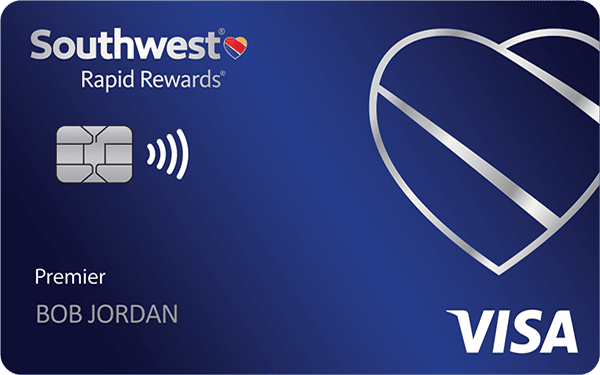
Southwest Rapid Rewards® Premier Credit Card |
1x - 3xPoints
Earn 3 points for every $1 on Southwest Airlines® purchases, 2 points for every $1 on Rapid Rewards hotel and car rental partners, 2 points per $1 on local transit and commuting (including rideshare), 2 points per $1 on internet, cable, and phone services; select streaming, and 1 point for every $1 on all other purchases. |
$99 |
50,000Southwest Rapid Rewards Points
Earn 50,000 bonus points after spending $1,000 on purchases in the first 3 months from account opening. Dollar Equivalent: $700 (50,000 Southwest Rapid Rewards Points * 0.014 base) |
This product is currently not available via Slickdeals. All information about this product was collected by Slickdeals and has not been reviewed by the issuer. |
|
|
2%Cashback
Earn unlimited 2% cash rewards on purchases. |
$0 |
$200Cash Bonus
Earn a $200 cash rewards bonus after spending $500 in purchases in the first 3 months. |
Apply Now Rates & Fees |
|
|
1% - 5%Cashback
Earn 5% cash back on purchases in your top eligible spend category each billing cycle, up to the first $500 spent, 1% cash back thereafter. Also, earn unlimited 1% cash back on all other purchases. |
$0 |
$200Cash Bonus
Earn $200 in cash back after you spend $1500 on purchases in the first 6 months of account opening. This bonus offer will be fulfilled as 20,000 ThankYou® points, which can be redeemed for $200 cash back. |
Apply Now Rates & Fees |
How to Maximize a Sign-Up Bonus
Once you know which credit card bonus you want, follow these steps to work on maximizing your rewards:
- Time your card applications carefully: Apply when the card has the best offer and at a time you were planning to spend more, such as right before the holidays or before remodeling your kitchen. This will help you reach the spending limit faster. Also let enough time pass between applications. For example, you must wait 24 months to receive another sign-up bonus from a Chase credit card.
- Never overspend: The desire to meet your credit card bonus spending threshold might put you in a shopping flurry. Keep track of your spending to make sure you reach the minimum without racking up debt. Only spend money you normally budget for.
- Look for special offers: Some cards let you add an authorized user for additional points. Other times, you can activate offers on your card to make your spending go even further.
- Watch out for hidden fees: Not every retailer lets you swipe your plastic for free. Some purchases will incur a convenience fee, common with online ticket vendors or third-party companies that allow you to pay your rent with a credit card.
- Know what counts toward your spending threshold: Most cards don’t count annual fees, transferred balances or cash advances. Many cards also don’t count gift cards or lottery ticket purchases, either. Read your card’s fine print thoroughly before you spend. When in doubt, a quick chat with your card’s customer service line can help.
- Be careful about returning items: Any returns made on your card won’t count toward your purchase total. Even if you return an item after you receive your bonus, the issuer can reclaim the bonus if your original purchases didn’t meet the spending requirements. Try returning items in exchange for store credit rather than getting credit back on your card.
Are Sign-Up Bonuses Taxable?
Thankfully, most credit card bonuses are not taxable, as long as you earn your bonus by meeting a spending limit and it's for a personal account. The same rule applies for any money, points or miles earned through everyday spending. Typically, credit card bonuses are seen as rebates and not as income.
The main time credit card rewards are taxable is when you do nothing in exchange for the reward. For example, if you earn 50,000 miles for signing up for a credit card but are not required to spend money to qualify for the offer, then you'll most likely need to pay tax on the bonus because it will be flagged as income.When credit card bonuses don’t require a specific spending requirement, you might be sent a Form 1099-INT or a Form 1099-MISC from your card issuer for the cash value of the bonus.
 Related Article
Related Article
9 Best and Cheapest Online Tax Services in April 2024
Is a Credit Card Sign-Up Bonus Worth It?
Earning a credit card sign-up bonus can be worth it if the requirements to do so fit your typical spending habits and you know you can easily use the reward you earn.
However, a bonus may not be worthwhile if it tempts you to overspend or the rewards don’t fit your lifestyle. Resist the urge to chase bonus offers and always evaluate a card's benefits over the long term. Similarly, watch the impact opening multiple cards has on your credit score over a short period of time (one or two years). Credit card approvals always involve a hard pull on your credit report, which can have a negative impact. Because of the impact opening new cards has on credit scores, you can also consider bank bonuses and brokerage bonuses, both of which offer valuable cash offers to new customers—usually with only a soft pull on your credit.
FAQs
-
No, credit card sign-up bonuses are generally not taxable. Because you earn a sign-up bonus by meeting a spending requirement, they are regarded as rebates by the IRS. However, if you do nothing to earn a sign-up bonus, it will likely be reported as income, and the card issuer will send you a tax form to include in your tax return.
-
A cash-back bonus can refer to two things, rewards earned when making purchases with a credit card or a cash-back sign-up bonus that can be earned when opening a new credit card account.
Cash back earned as part of a sign-up bonus: Some card issuers offer new cardholders a cash-back bonus when they open a new credit card and meet a spending threshold or other requirements.
Cash back earned on purchases: A cardholder can earn a predetermined amount of cash back when they use a card as a form of payment, typically between 1% to 3% per dollar spent. -
Popular ways to spend enough to meet a credit card bonus requirement include:
-Putting all of your purchases on the new card
-Making planned big-ticket purchases (like appliances, vehicles, or travel)
-Getting reimbursed for business expenses
-Making charitable donations
-Purchasing rewards points or miles
-Prepaying expenses (like insurance premiums or eligible utilities)However, you don’t want to spend money you normally wouldn't just to reach a bonus requirement.
-
Bonus miles are one of several types of spending rewards that cardholders earn when they use their credit cards. Some card issuers award additional bonus miles for certain spending categories including dining, groceries and travel. For example, a credit card may earn 3X miles per dollar spent at restaurants and 1X point on all other spending. While another card may earn 2X miles on all purchases. Depending on the credit card, you can redeem bonus miles for free flights, travel purchases, cash back, gift cards and more.
